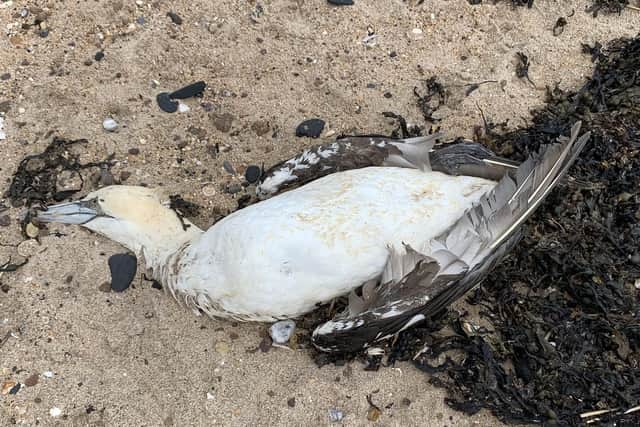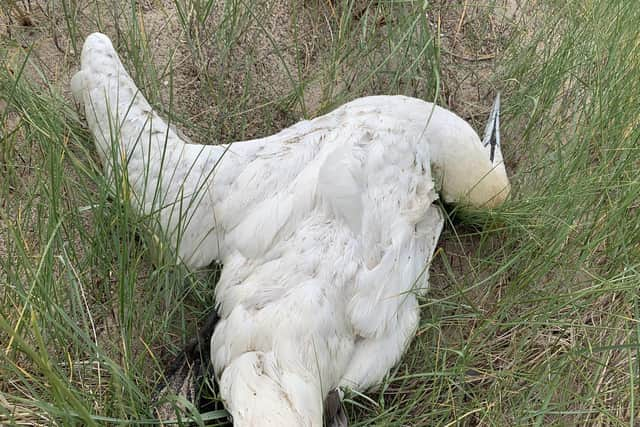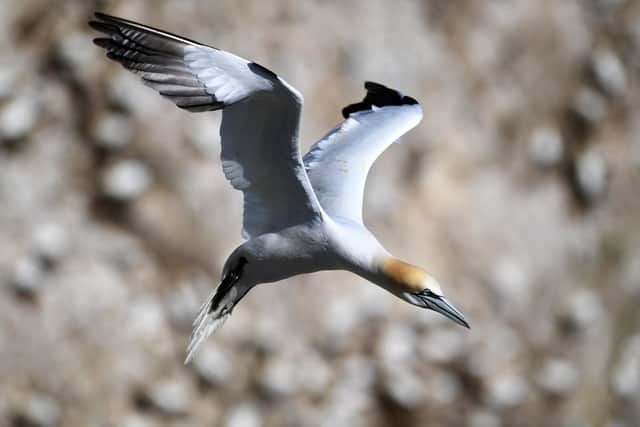RSPB demands government intervenes to tackle suspected outbreak of bird flu in Northumberland
and live on Freeview channel 276
Dying and diseased birds have been found at Warkworth, Seahouses, Beadnell, Amble, Cresswell, Seaton Sluice and Druridge. It has not been confirmed that they had avian flu, but it is suspected.
The majority of the dead birds have been gannets, which breed in huge numbers at Bass Rock off North Berwick.
Advertisement
Hide AdAdvertisement
Hide AdThe deaths are a major concern to the RSPB, which has called on the government to come up with a response plan to deal with the crisis.


Katie-Jo Luxton, the RSPB’s director of conservation, said: “A highly mutable and deadly new form of avian influenza, which originated in poultry, is killing our wild seabirds in large numbers.
"We urge UK governments to develop a response plan urgently and to coordinate surveillance and testing, disturbance minimisation, carcass disposal and biosecurity.”
Tom Cadwallender, a freelance ornithologist who used to work for the Northumberland Coast Area of Outstanding Natural Beauty, said he feared the deaths seen so far was just the tip of the iceberg.
Advertisement
Hide AdAdvertisement
Hide AdHe added: "It’s not widespread yet, but we’d expect it to get worse.


"My understanding is that it’s mainly been gannets which don’t breed here in Northumberland but will have travelled from Bass Rock and elsewhere along the east coast of Scotland where there has been an outbreak of avian flu.
"I haven’t heard about it impacting on the auks like puffins, guillemots and razorbills or the gulls, but the nature of avian flu means it could spread.
“If there is a saving grace, it’s that most of these birds are long lived and the populations are pretty robust so can withstand a bad year. But if it gets into rare species, it can be a big problem.”
Advertisement
Hide AdAdvertisement
Hide AdPuffins have washed up in Stonehaven, a harbour town south of Aberdeen, but so far the colonies at the Farne Islands appear to be unaffected.


A spokesman for the National Trust, which manages the Farnes, said it was concerned about the number of dead birds being found in Northumberland and was working closely with the RSPB, Natural England and DEFRA to see if avian flu was to blame.
He added: “The UK is home to some of the most special seabird colonies in the world, many of which are already facing significant challenges, and it's vital we do everything we can to protect them.”
A spokesperson for Northumberland County Council said it was liaising with DEFRA to ensure that any required testing for bird flu was carried out.
Advertisement
Hide AdAdvertisement
Hide AdAny infected bird also needs to be properly disposed of if found on public land.
The spokesman added: “If a member of the public comes across a dead wild bird, they are asked to report it to DEFRA on 03459 335577 (select option 7). Providing good location information for a dead or diseased bird is particularly important and location apps such as 'what3words', references can be very helpful.
“Please do not touch or pick up any dead or visibly sick birds.”